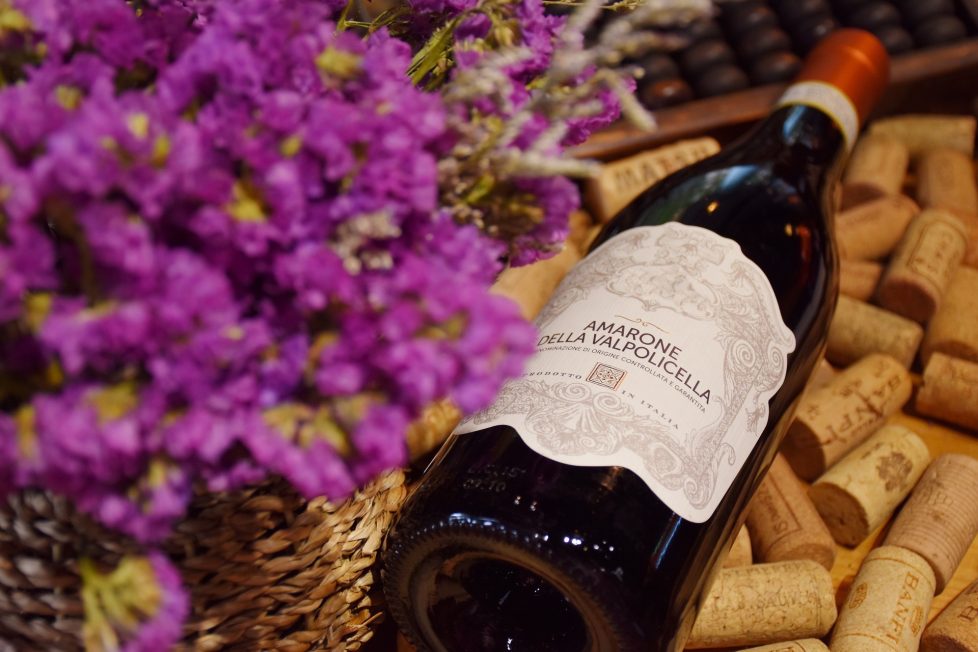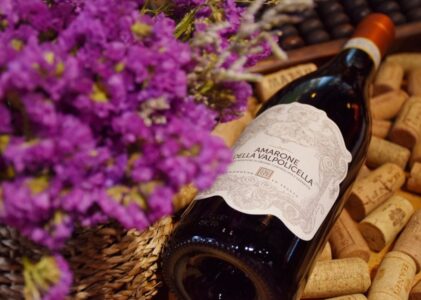The king of Valpolicella returns to the spotlight with the 2018 vintage at Amarone Opera Prima scheduled in Verona, at the Palazzo della Gran Guardia on February 4th and 5th, 2023: 64 wineries from the territory will present the excellence of this wine and its evolution at a particular moment for the wine sector in our country. Organized by the Valpolicella Wines Consortium, the denomination’s flagship event thus returns to its traditional winter dates, after the success of the extraordinary preview in June 2022 rewarded by a versatile format to be proposed even out of season, albeit with different thematic focuses.
Opening the two-day Amarone Opera Prima will be the inaugural press conference (Saturday, Feb. 4, Auditorium Gran Guardia, 11 a.m.) with the presentation of the appellation’s market data, the value of generational turnover and prospects for wine tourism in Valpolicella by the president of the Consortium, Christian Marchesini, and the 2018 wine year illustrated by Giambattista Tornielli, associate professor of General Arboriculture and Tree Cultivation at the University of Verona.
A trend, that of the appellation’s success, which increasingly transits through the under-40s at the helm of wineries in the 19 municipalities of Veneto’s most important red appellation. According to elaborations by the Consortium for the Protection of Valpolicella Wines based on data from the regional agency Avepa, which will be released at the Verona kermesse, over the past 10 years the numerical figure has in fact recorded a growth of almost 100 percent of businesses under 40. A young line that reflects a non-trivial vitality for an area that annually expresses about 500 million euros in value of ex-cellar sales, almost half of which relate to the global Amarone business. “It is no coincidence,” said Consortium president Christian Marchesini, “that the strong growth of young companies is going hand in hand with the green transition of our wine, another strategic aspect that the younger generations espouse with greater conviction. It is precisely for this reason that at the end of last year we started the first Young Group of an Italian wine consortium: it is only right that the nearly 350 under-40 companies in Valpolicella have a way to make their voices heard and, above all, to team up with a view to improving our economy.”
Fundamental in this direction, then, is the spirit of unity among all the producers of the denomination to make the most of the extraordinary potential of a wine and, above all, of a territory among the most vocated in Italy for wine production. Verona is the city that holds the record for the largest urban vineyard in Italy with 8600 hectares of vineyards and a turnover of more than 600 million euros, more than half of which refers to the performance ofI re dei Rossi della Valpolicella. Not to forget that of the 101,000 hectares of Veneto vineyards, a good 30,289 are located in the Verona area.
A “green facelift,” that of Valpolicella, which, according to Avepa data, can be seen in the incidence of organic or Sqnpi (the National Integrated Production Quality System) certified businesses, which jumped from 3 percent to 33 percent, with today’s 2873 hectares planted with green vines (out of a total of 8586) compared to 212 in 2012. Last year, the Consortium notes, total bottled exceeded the equivalent of 67.2 million pieces (from 0.75/l). Of these, 17.2 million of Amarone alone, almost 7 percent more than the average of the past five years.
Finally, it seems to be moving toward its conclusion, with the last step to be illustrated at the conference,of the candidacy of the centuries-old technique used to vinify the best red wines of the territory, including Amarone and Recioto, handed down for more than 1,500 years, to Unesco intangible heritage, with contributions from Pier Luigi Petrillo, professor and director of the Unesco Chair on Intangible Cultural Heritage at the Unitelma Sapienza University of Rome, and Elisabetta Moro, full professor of Cultural Anthropology at the Suor Orsola Benincasa University of Naples. Speakers at the talk show include Francesco Lollobrigida, minister of Agriculture, Food Sovereignty and Forestry; Adolfo Urso, minister of Enterprise and Made in Italy; Gianmarco Mazzi, undersecretary at the Ministry of Culture; Luca Zaia, president of the Veneto Region; and Damiano Tommasi, mayor of Verona.
For Christian Marchesini, president of the Valpolicella Consortium leading the initiative, “Grape drying is, not surprisingly, the first winemaking technique to be nominated as a World Heritage Site. Indeed, it is a savoir faire that has written the history but also the economy of our territory, shaped its products by defining their quality, helping to shape geography and social evolution, work ethics and entrepreneurship, holidays and seasonal rhythms. A fundamental piece of our identity that cannot be taken for granted, and that must be understood and valued also and especially by the new generations.”
After the calls to action in the territory made last year by the Promoting Committee (of which the Consortium is coordinator), the candidacy process now enters its final phase with the official presentation of the dossier, which will then be forwarded to the Ministries of Culture and Agriculture and to the National Commission for UNESCO(an interministerial body under the Ministry of Foreign Affairs), which by March 30 must choose the Italian candidacy to be sent to Paris for the complex evaluation by UNESCO.
“Unesco recognition represents an important opportunity for the communities involved,” explains Pier Luigi Petrillo, president of the UNESCO Convention’s body of world experts on intangible cultural heritage. “In addition to entailing a push to protect the tradition and biocultural landscape in which it is exercised, it ensures its transmission to new generations and encourages a collective enjoyment of traditions and rituals related to it as well, stimulating the growth of the territory and awareness of its cultural and identity heritage.
Opening hours. At the start, from 12:30 p.m. on the first day, tastings at the wineries’ stands reserved for the national and international press, while from 4:30 to 7 p.m. Amarone Opera Prima will also open to operators and winelovers who can replicate the tastings the following day, Sunday, Feb. 5, from 10 a.m. to 7:30 p.m. (admission fee reserved for those over 18. Ticket: 35 euros in advance sale and 40 euros on event days), more info www.amaroneoperaprima.it

